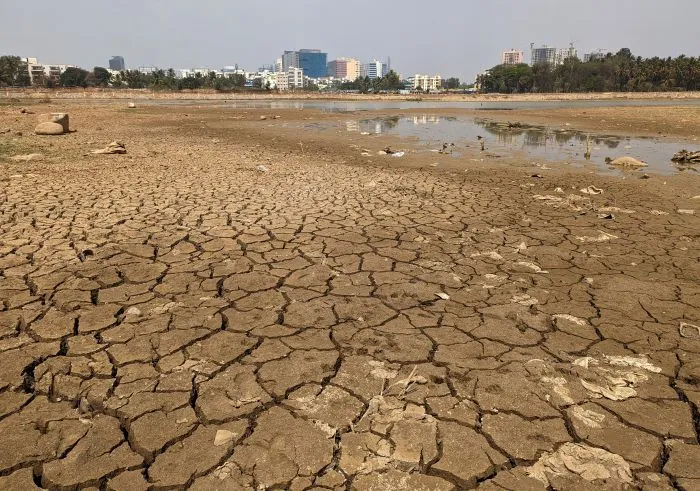Bengaluru Braces for Water Shortages This Summer
As Bengaluru braces for another hot summer, water shortages are becoming a growing concern for residents, particularly in parts of South-East Bengaluru, Whitefield, and areas on the outer city limits. According to the Bangalore Water Supply and Sewerage Board (BWSSB), these regions, which primarily rely on groundwater, are expected to experience significant water stress in the coming months. A recent study by BWSSB, in collaboration with the Indian Institute of Science (IISc), has raised alarms, revealing that over 80 wards, including 110 villages, face a high risk of water shortages due to heavy dependence on groundwater sources.
The situation is critical, as the study highlights that Bengaluru's borewells currently extract about 800 million liters of water daily. Groundwater levels are projected to fall drastically, with some areas experiencing declines of up to 25 meters. In central Bengaluru, the groundwater levels are anticipated to drop by 5 meters, while areas under the City Municipal Council (CMC) may see a decrease between 10 and 15 meters. The most alarming forecasts indicate that the 110 villages under Bengaluru's jurisdiction could face groundwater level declines of 20 to 25 meters.
To address this pressing issue, BWSSB Chairman Ram Prasath Manohar urged residents, particularly those in high-risk areas, to reduce their reliance on groundwater and shift to Cauvery water connections. The recently completed Cauvery Phase 5 Project has increased water availability in the city, providing a more sustainable solution to meet Bengaluru's growing demands.
The study also emphasizes the importance of sustainable water management practices and highlights the role of the special task force, led by Deputy Chief Minister D K Shivakumar. The task force has been working diligently over the past six months, analyzing water supply data and developing a comprehensive action plan to mitigate water shortages across Bengaluru.
This study marks a significant step in the city’s efforts to address its water issues. The task force, which includes IISc scientists and officials from both state and central groundwater development departments, is committed to ensuring that Bengaluru's water needs are met this summer and for years to come.
As residents, it is crucial to be proactive and adopt water conservation practices to avoid further strain on the city's water resources. Reducing water usage, avoiding wasteful consumption, and exploring alternatives like rainwater harvesting can go a long way in helping Bengaluru weather the summer’s challenges.
Now is the time to take action and ensure that Bengaluru has enough water to meet its needs, not just this summer, but in the long term. Let’s all do our part in preserving this vital resource for the future.

COMMENTS (0)
Sign in to join the conversation
LOGIN TO COMMENT